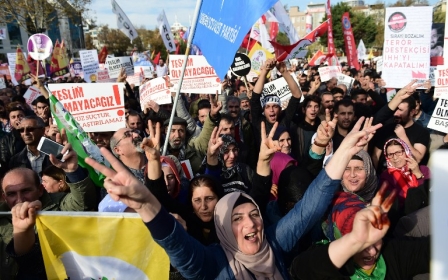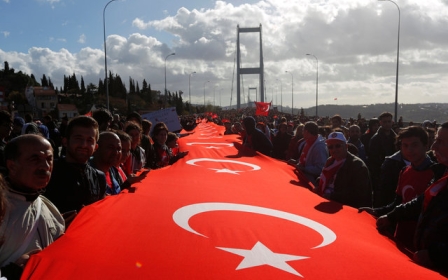Turkey crackdown: Thousands more sacked amid Gulen purge
ISTANBUL, Turkey – More than 10,000 public employees were dismissed from their posts in Turkey on Tuesday in a new round of dismissals via a decree issued by the government.
The decree issued in the early hours of Tuesday announced the sacking of 1,988 soldiers, 7,586 police and 5,434 other public sector employees. Meanwhile 157 people were reinstated in their jobs, based on the same decree.
The decree also announced the closure of 550 associations, nine media outlets and 19 private health service providers.
A state of emergency was declared in Turkey on 20 July, five days after a failed coup attempt which resulted in 246 deaths. It grants the government expanded powers, including the power to rule by decree and bypass parliament.
The government accuses its erstwhile ally turned arch foe of infiltrating various state institutions over the last four decades with the aim of implementing regime change.
More than 100,000 people have been suspended or dismissed from their jobs and at least 35,000 arrested since the start of the crackdown.
READ: Turkish turbulence: Cumhuriyet closure is just the beginning
Domestic and international critics have voiced concern over the observation of judicial due process and the government’s potential abuse of the state of emergency to target all its opponents.
Top government officials, including the prime minister and president, had initially vowed to use state of emergency measures only to cleanse state institutions of Gulen followers. Later they changed their line and said they would not differentiate between enemies of the state.
The three-month state of emergency was extended by another three months in October. Turkish President Recep Tayyip Erdogan hinted at the time that it would be extended for more than a year if deemed necessary.
Middle East Eye propose une couverture et une analyse indépendantes et incomparables du Moyen-Orient, de l’Afrique du Nord et d’autres régions du monde. Pour en savoir plus sur la reprise de ce contenu et les frais qui s’appliquent, veuillez remplir ce formulaire [en anglais]. Pour en savoir plus sur MEE, cliquez ici [en anglais].





